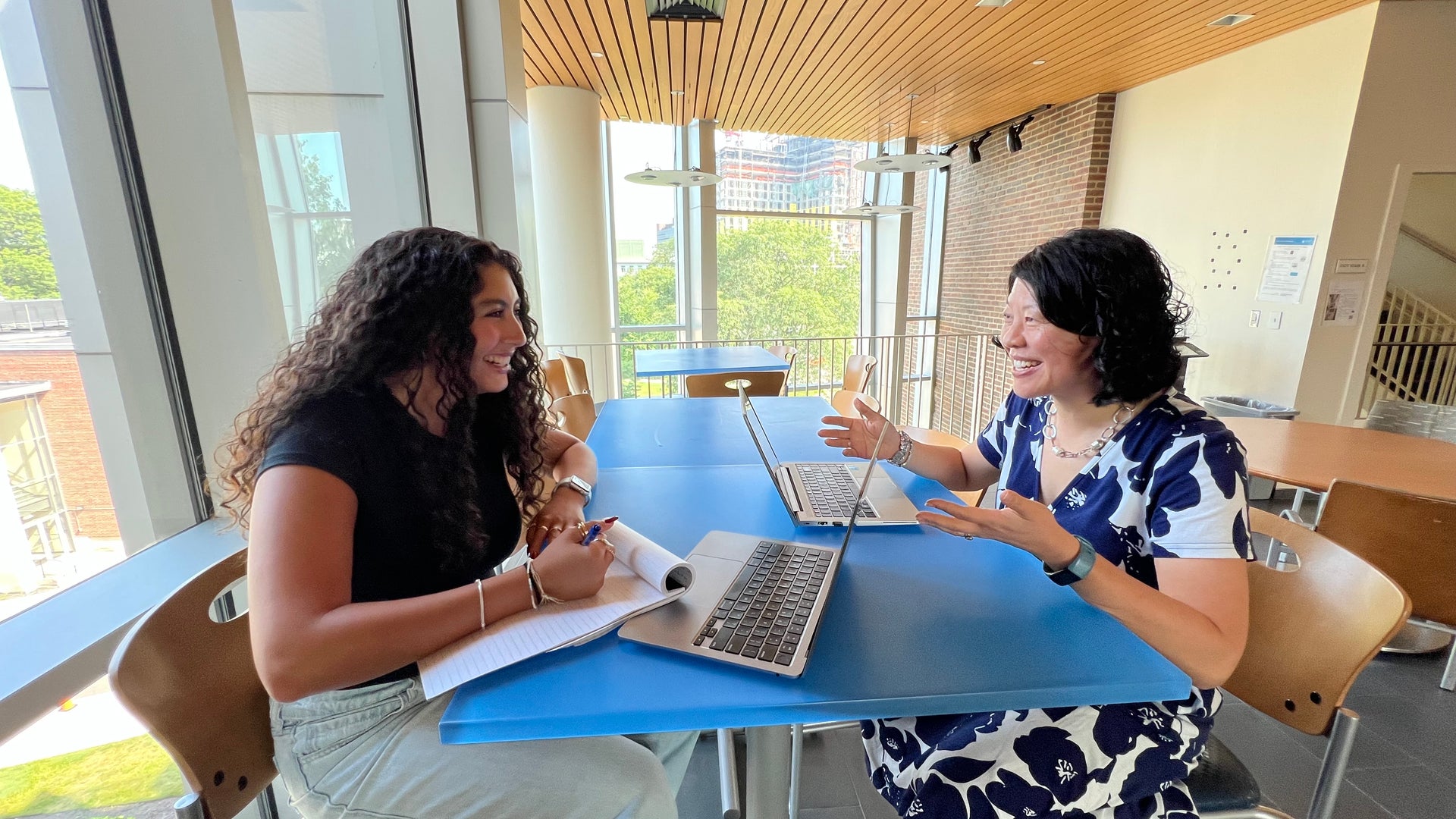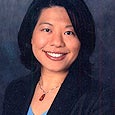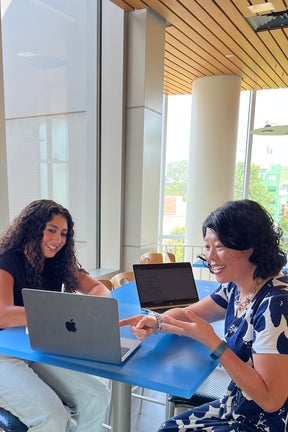Whether it’s introducing yourself to a stranger or complimenting them on their shoes, shifting societal norms directly impact how people from different generations socialize.
With social media more prevalent than ever and feelings of social isolation and disconnection at an all-time high after the pandemic, Emmanuel College Professor of Psychology, Dr. Linda Lin, found herself wondering how these things intersect – particularly for Gen Z individuals – and it quickly became the latest topic of her research.
Emmanuel College’s summer research program offers students and faculty alike the distinct opportunity to collaborate on scholarly work. This summer, 45 students across multiple disciplines and Academic Schools are conducting research with Emmanuel faculty. Throughout this series, we will highlight the research going on throughout the summer, which will conclude with a poster session in the fall.
The topic also caught the attention of Sophia Trindade ’27, a Psychology major with a concentration in Counseling & Health, and a double minor in Industrial & Organizational Psychology and Human Resource Management. She started her summer research at the beginning of July after a semester abroad program in Fiji through The Education Abroad Network (TEAN).
Trindade, who aspires to become a therapist for kids in their early teens, has since seen research in a whole new light.
“This has really opened my eyes to the reality of what research can be… so much more than I thought it was,” she said, “the opportunity to be involved in this process has helped me bridge the gap between doing the research and hands-on work.”
Trindade had been familiar with Dr. Lin and her expertise since she took a mock class with her at an Emmanuel Accepted Students’ Day. From that point on, she said she was very excited to take actual classes with her, and has taken a few with Dr. Lin since. Getting involved on the research front took a bit more time!
When Dr. Lin would ask to see if she’d be interested in research, she said she wasn’t interested – but Dr. Lin continued to encourage Trindade to try it because she saw the potential in how Trindade could succeed in research and in the field, and even pursue a Ph.D. if she really wanted to.


